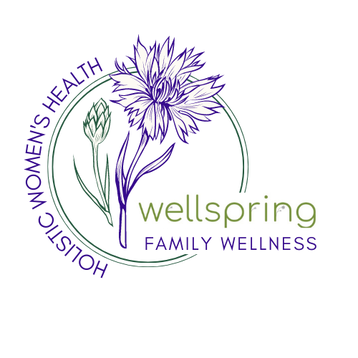|
Many of the resources and articles shared on this website are focused on improving fertility. For those of you who are primarily interested in preventing pregnancy, not achieving it, it might be tempting just to scroll on. After all, if you are trying to avoid pregnancy, the idea of trying to increase your fertility might seem unnecessary and counterproductive. But actually, there are some very compelling reasons why everyone of reproductive age, whether you want children now (or ever!) or not, should be concerned about preserving and even improving their fertility. 1. Improving your fertility means improving your health. First let’s define ‘fertility’. Fertility can be described as simply as the quality of a person’s ability to produce offspring. I think it’s safe to assume that a healthy person of reproductive age is designed to be able to reproduce. If they cannot, that must mean that there is something amiss. Sometimes it is something they were born with that can’t be cured (such as malformed reproductive anatomy or other structural problem), but usually when our reproductive system isn’t working right, it’s a sign of some level of ill health. Basically, if you can’t make babies, you might be sick. Many gentle, natural approaches to improving fertility are actually focused on things like treating underlying health conditions, correcting nutritional deficiencies, and ridding the body of chemicals and toxins. With the exception of certain artificial reproductive technologies, measures taken to increase your ability to conceive are generally just making you a healthier person. Sounds like something that everyone should be doing!  2. Fertility is not a guarantee. Although some women are blessed with the ability to conceive easily whenever they wish, this is not the case for many others. Though you may not want children now, your choices and lifestyle today may affect your future fertility. Learning as much as you can about how your body works and how to safeguard your future fertility may be the best gift you could ever give to yourself! Simple changes such as getting off of hormonal birth control, eating a nutrient rich diet, and reducing your exposure to toxins can make all the difference when you are ready to start your family.  3. Better fertility might mean better periods Did you know that your periods are not supposed to be horrendously painful? I think in our culture we’ve been conditioned to believe that miserable, sometimes agonizing menstruation is a normal part of being a woman. And if we don’t like it, we can artificially suppress our entire reproductive system with drugs. This should not be the case! Debilitating pain, out of control mood swings or very heavy bleeding can all be signs of underlying problems. Very often, natural fertility-supporting remedies and therapies designed to increase your chances of conceiving can also work to dramatically reduce uncomfortable menstrual symptoms. Reducing inflammation, giving your body the vitamins and nutrients it needs, and correcting hormone imbalances could completely change how you experience your ‘time of the month’. So, where to start? How do you begin to safeguard or improve your fertility? Getting off of artificial birth control is a good first step. Allowing your body to have real cycles, with real hormones working through your system is essential for good reproductive health. Next, you can learn to chart your fertility cycle using natural family planning. This will tell you how your reproductive health is doing and give you clues to any possible issues. If you do suspect a problem, talk to your natural family planning instructor or find a good, naturally-minded specialist, such as a NaPro doctor or nutritionist. If all seems well, start nourishing and protecting your body by living a more active, natural lifestyle. Make small, simple changes that are manageable and sustainable. Your body (and future family) will thank you! Images courtesy of freedigitalphotos.net
0 Comments
Your comment will be posted after it is approved.
Leave a Reply. |
For updates, new articles, upcoming events, and information about fertility, healthy relationships, and natural family planning, sign up for the newsletter below:
Categories
All
|
Wellspring Family Wellness
[email protected]
2024
This site and associated social media may contain affiliate links from which I earn a small commission
[email protected]
2024
This site and associated social media may contain affiliate links from which I earn a small commission

